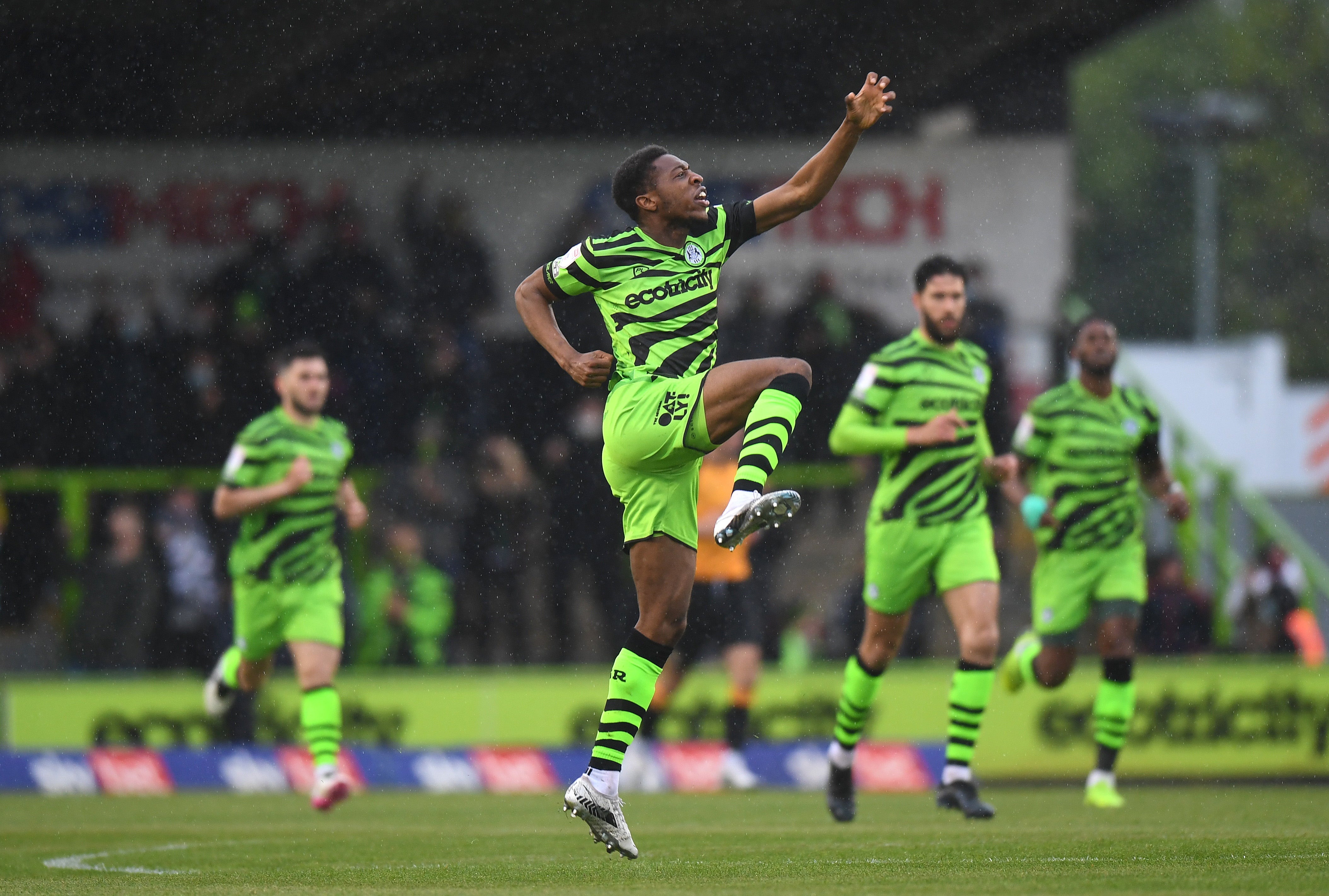Football fans can go green and embrace veganism – just look at Forest Green Rovers FC
We have fan groups in 20 different countries, people that have bonded with the club because of our environmental and ethical stance. We’ve not just created a new kind of football club but a new kind of football fan


I’ve been a football fan all my life, mad for it as a kid and I still play now – though I never had a club, just England. But I never imagined myself running a football club, or ever wanted to.
Getting involved in football was a happy accident for me, and now it’s hard to imagine life without it. My club is Forest Green Rovers. Both Fifa and the United Nations describe us as “the greenest football club on the planet”. And not for nothing.
It started ten years ago as a rescue mission, Forest Green were facing relegation and bankruptcy. It was a 120-year-old club, a big part of the community and in my backyard – saving it seemed better than seeing it fold. I thought to myself, “how hard can it be?” – that was the actual extent of my planning. I start all my adventures this way, it involves two feet and some jumping.
What I discovered was that football generally and Forest Green more specifically did a lot of things I didn’t agree with, mostly about sustainability but there were some ethical issues too. The scale of the changes we needed to make meant that in effect we needed to build a new kind of club – a green one. And our audience, football fans, were not the kind of people normally exposed to environmental messaging. We would not be preaching to the choir. That added to the appeal.
I reckoned that we might be able to reach this new audience through the medium of football and get them engaged and make them fans of the environment too. I thought we might even be able to reach beyond Forest Green into the wider world of football, maybe even the world of sport itself. All of this thinking came after the event, it’s how it snowballed.
Ten years later, the results are beyond my wildest dreams – and I have fairly unfettered dreams, that’s how I came to create Skydiamond, actual diamonds made from carbon in the atmosphere. But that’s another story.
Building the new Forest Green was a parallel journey of modernisation, culture change and greening up.
Within a few years we were entirely vegan, including all food and drink for players, staff and fans. We installed electric car charging posts (electricity pumps) so that fans could get to a game and get home again in the electric cars they didn’t yet have. We installed solar panels on our roof tops, we turned the pitch organic, collected rainwater from underneath it and employed an autonomous solar-powered robot lawn mower.
More recently, we stopped using single-use plastic and introduced sustainable materials into our kit – first came bamboo, this year it’s coffee grounds.
Above all else we’re having fun and that’s essential. Our mission is to persuade people to live their lives differently. We can still have the things we like, burgers, cars, football (even diamonds) but we need to do things another way, which coincidentally is the name of the road where our stadium is.
We took our fans on this journey with us, explaining why we did all these different things and one of the best outcomes of this for me is the extent to which our fans have changed how they live, adopting veggie or vegan diets, driving electric cars, putting solar panels on their homes – the whole eco nine yards.
In the process we discovered that football is the most incredible platform for communicating and that football fans are just as receptive as anyone else. A few years ago we started working with the UN to engage the entire world of sports fans and make them fans of the environment too – that’s a wild outcome from the rescue of a local football club.
We have fan groups in 20 different countries, people that have bonded with the club because of our environmental and ethical stance. We’ve not just created a new kind of football club but a new kind of football fan.
We’ve been aided and abetted in this by constant global media attention, even now ten years later – because football and the environment look like an improbable combination. But that’s a misconception.
Dale Vince is club chairman of Forest Green Rovers FC
Join our commenting forum
Join thought-provoking conversations, follow other Independent readers and see their replies
Comments
Bookmark popover
Removed from bookmarks